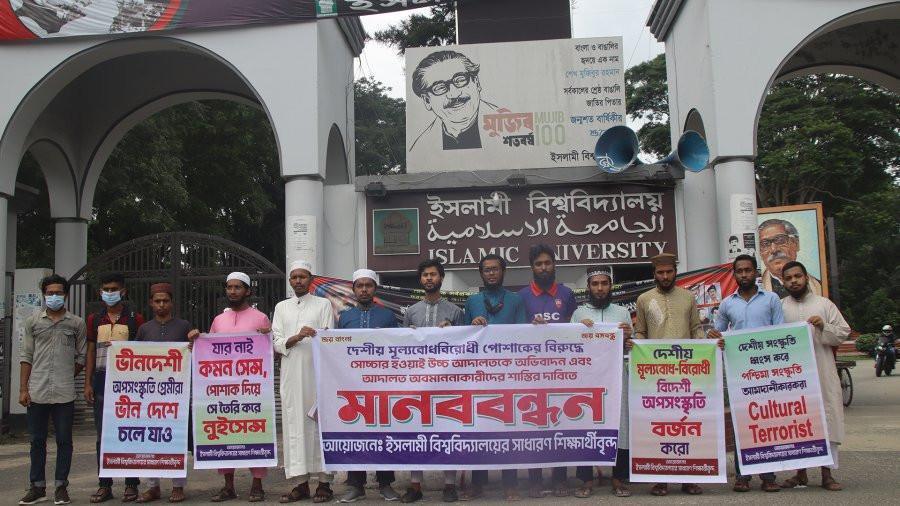A Worn-out Debate: An Op-Ed by Syeda Samara Mortada
What gives men the right to dictate what women wear and don’t wear?
The recent verdict of the High Court, granting bail to the assailant of the May 18 attack in Narsingdi — the case where a woman was abused for wearing a crop top and jeans. On August 22, the High Court observed the dress of the 22-year-old private university girl, who was subjected to humiliation by a woman and several men while waiting with two of her friends at Narsingdi Railway Station on May 18, was not proper as per the country’s culture. The High Court noted that such dress (sleeveless tops and jeans) was inappropriate even in the Gulshan area.
Various women’s organizations and activists have protested in the streets for their rights to appear in public and wear whatever they like, and there have been debates about how our cultures and traditions have become so delicate that they can be so quickly influenced by a simple piece of clothing. Women’s rights activists and members of civil society have raised several straightforward but important concerns that demand a solution.
– How easy is it to seduce men, if all one needs to do is wear a top and jeans?
– What is this culture that breaks into tiny shreds of pieces each time a woman puts on a pair of jeans? Who made this culture, who protects it, and why is the onus always on women to do so?
– What gives men the right to dictate what women ought to wear and not wear?
Unfortunately, despite thousands of cases of rape, harassment, and physical & mental torture that have been done to women for years after years; no one has yet come forward with the proper answer with justification to the questions asked above. It’s high time women’s rights activists should initiate an urgent plan of action with female legislators and push for gender-sensitive laws. They must ask policy-makers why, even after years of signing the Convention on the Elimination of all Forms of Discrimination against Women (CEDAW) in 1984, Bangladesh still has reservations about those acts about personal laws involving women. Along with protests and movements, they must use systems like the Universal Periodic Review and CEDAW Shadow Reporting to hold States accountable.
* Syeda Samara Mortada is a feminist activist working as a Coordinator in ‘Bonhishikha’.
To read the full article, please visit The Dhaka Tribune


